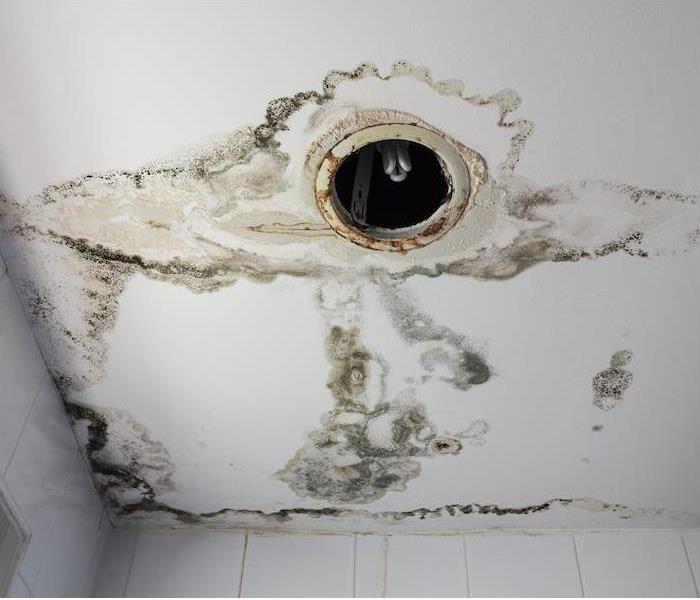5 Places to Check After a Hard Rain
2/2/2022 (Permalink)
 Water damage can come from a number of places. If you find any signs of damage to your property, call SERVPRO of Troup-Coweta.
Water damage can come from a number of places. If you find any signs of damage to your property, call SERVPRO of Troup-Coweta.
We get plenty of rain in the Fayetteville area. The national average for a given city is 38 inches of rain per year, and we beat that average that by more than 10 inches.
Now some of that rain courtesy of your standard, near-daily summer shower. But some of it, as you well know, comes from storms that pack quite a bit more punch.
As a homeowner, it’s incumbent upon you to protect your home as much from water damage as much as possible, or at least to stop it once it’s discovered. So after a heavy rain, here are the places you should check to make sure all is well.
Check your basement. If there’s one solitary place you can anticipate water damage at home, it’s the basement. Homes with basement have a 98% chance of experiencing excess moisture or flooding at some point, so check here first. If you see water pooling, paint bubbling or you smell a damp odor, you may have an issue.
Crawlspaces and attics. Much like the basement, these areas can become inundated with moisture. If you have a crawlspace instead of a basement, it’s subject to the same kind of moisture issues, and attic moisture can reveal to you that there’s a leak somewhere in the roof.
Check on your sump pump. Your sump pump works hard to move water away from your house during a big storm. You should test your pump quarterly, or after any major rainfall.
Examine your gutters. Your gutters catch more than rain, and there are plenty of ways for them to get clogged or even damaged. In particularly heavy rains, gutters can be overwhelmed by water flow, and that becomes even more likely if they are obstructed due to built-up dirt, granules from roof shingles, twigs and leaves.
Inspect your roof. You don’t have to get up on a ladder every time it rains, but after a heavy storm, particularly if you have overhanging tree branches, take a good look at your roof from the ground. If you notice anything that looks off—broken or warped shingles, unfastened flashing or gutters that seem out of place—call a professional to conduct a full examination.
Water damage can come from a number of places at home. If you find a source of water leakage has done harm to your property, call your local SERVPRO for fast, expert help.




 24/7 Emergency Service
24/7 Emergency Service